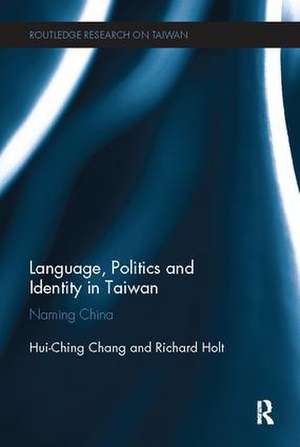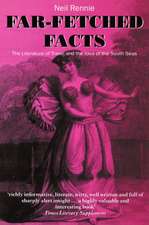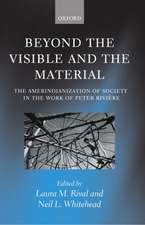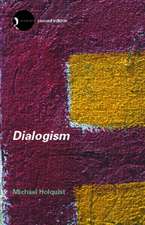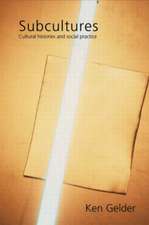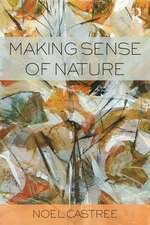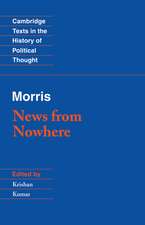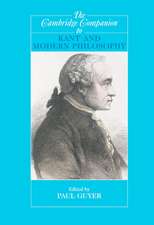Language, Politics and Identity in Taiwan: Naming China: Routledge Research on Taiwan Series
Autor Hui-Ching Chang, Richard Holten Limba Engleză Paperback – 25 mai 2017
Language, Politics and Identity in Taiwan traces the intertwined paths of five sets of names Taiwan has used to name China since the KMT came to Taiwan in 1949: the derogatory "Communist bandits"; the ideologically focused "Chinese Communists"; the seemingly neutral geographical designators "mainland" and "opposite shore/both shores"; and the ethnic and national label "China," with the official designation, "People's Republic of China." In doing so, it explores how Taiwanese identities are constituted and reconstituted in the shifting and switching of names for China; in the application of these names to alternative domains of Taiwanese life; in the waning or waxing of names following tides of history and polity; and in the increasingly contested meaning of names. Through textual analyses of historical archives and other mediated texts and artifacts, the chapters chart Taiwan's identity negotiation over the past half century and critically evaluate key interconnections between language and politics.
This unique book will be of great interest to students and scholars of Taiwan studies, Chinese politics, communication studies and linguistics.
| Toate formatele și edițiile | Preț | Express |
|---|---|---|
| Paperback (1) | 449.41 lei 6-8 săpt. | |
| Taylor & Francis – 25 mai 2017 | 449.41 lei 6-8 săpt. | |
| Hardback (1) | 1055.51 lei 6-8 săpt. | |
| Taylor & Francis – 18 noi 2014 | 1055.51 lei 6-8 săpt. |
Din seria Routledge Research on Taiwan Series
- 9%
 Preț: 934.96 lei
Preț: 934.96 lei - 24%
 Preț: 324.16 lei
Preț: 324.16 lei -
 Preț: 381.51 lei
Preț: 381.51 lei - 18%
 Preț: 999.19 lei
Preț: 999.19 lei -
 Preț: 398.60 lei
Preț: 398.60 lei -
 Preț: 407.78 lei
Preț: 407.78 lei -
 Preț: 350.68 lei
Preț: 350.68 lei -
 Preț: 482.74 lei
Preț: 482.74 lei - 18%
 Preț: 1006.92 lei
Preț: 1006.92 lei -
 Preț: 289.82 lei
Preț: 289.82 lei -
 Preț: 389.11 lei
Preț: 389.11 lei -
 Preț: 436.14 lei
Preț: 436.14 lei -
 Preț: 416.22 lei
Preț: 416.22 lei - 18%
 Preț: 1057.26 lei
Preț: 1057.26 lei - 13%
 Preț: 347.91 lei
Preț: 347.91 lei -
 Preț: 431.35 lei
Preț: 431.35 lei - 26%
 Preț: 765.26 lei
Preț: 765.26 lei -
 Preț: 412.37 lei
Preț: 412.37 lei - 31%
 Preț: 763.78 lei
Preț: 763.78 lei - 28%
 Preț: 821.14 lei
Preț: 821.14 lei -
 Preț: 416.22 lei
Preț: 416.22 lei -
 Preț: 408.54 lei
Preț: 408.54 lei - 18%
 Preț: 1109.18 lei
Preț: 1109.18 lei -
 Preț: 285.25 lei
Preț: 285.25 lei - 18%
 Preț: 1111.51 lei
Preț: 1111.51 lei - 19%
 Preț: 256.78 lei
Preț: 256.78 lei - 18%
 Preț: 1003.43 lei
Preț: 1003.43 lei - 28%
 Preț: 822.01 lei
Preț: 822.01 lei - 25%
 Preț: 769.10 lei
Preț: 769.10 lei - 18%
 Preț: 1061.93 lei
Preț: 1061.93 lei - 18%
 Preț: 1173.97 lei
Preț: 1173.97 lei -
 Preț: 410.66 lei
Preț: 410.66 lei - 18%
 Preț: 1064.01 lei
Preț: 1064.01 lei
Preț: 449.41 lei
Nou
Puncte Express: 674
Preț estimativ în valută:
85.99€ • 89.79$ • 71.01£
85.99€ • 89.79$ • 71.01£
Carte tipărită la comandă
Livrare economică 15-29 aprilie
Preluare comenzi: 021 569.72.76
Specificații
ISBN-13: 9781138095038
ISBN-10: 1138095036
Pagini: 232
Dimensiuni: 156 x 234 x 12 mm
Greutate: 0.45 kg
Ediția:1
Editura: Taylor & Francis
Colecția Routledge
Seria Routledge Research on Taiwan Series
Locul publicării:Oxford, United Kingdom
ISBN-10: 1138095036
Pagini: 232
Dimensiuni: 156 x 234 x 12 mm
Greutate: 0.45 kg
Ediția:1
Editura: Taylor & Francis
Colecția Routledge
Seria Routledge Research on Taiwan Series
Locul publicării:Oxford, United Kingdom
Public țintă
Postgraduate and UndergraduateCuprins
1.Naming China—Political Art as Challenges 2. Communist Bandits (Gongfei, 共匪)–the Evil Enemy 3. Chinese Communists (zhonggong, 中共)—the Ideological Identifier 4. The Mainland (Dalu, 大陸)—the Nostalgic Never-Land 5. Opposite Shore (duian) and "Both Shores" (liangan)—the Separated Partner 6. China (zhongguo, 中國) and The PRC (zhonghuarenmingongheguo, 中華人民共和國): "Us" or "Them"? 7. Further Thoughts
Notă biografică
Hui-Ching Chang is Associate Professor in the Department of Communication Studies and Associate Dean for the Honors College at the University of Illinois at Chicago, USA.
Richard Holt is Professor of Communication Studies at Northern Illinois University, USA.
Richard Holt is Professor of Communication Studies at Northern Illinois University, USA.
Descriere
This book traces the intertwined paths of five sets of names Taiwan has used to name China since the KMT came to Taiwan in 1949. In doing so, it explores how Taiwanese identities are constituted and reconstituted in the shifting and switching of names for China; in the application of these names to alternative domains of Taiwanese life; in the waning or waxing of names following tides of history and polity; and in the increasingly contested meaning of names. Through textual analyses of historical archives and other mediated texts and artifacts, the chapters chart Taiwan's identity negotiation over the past half century and critically evaluate key interconnections between language and politics.
